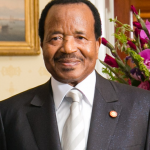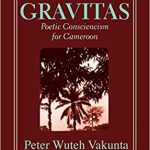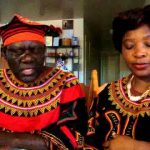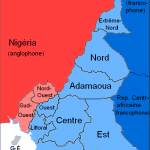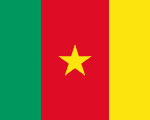While analysing the poem it is inevitable to ask the question why Vakunta chose poetry over other forms of art. What does Vakunta want to convey with this poem in this specific form? As the quote by Anthony Birch with which this project started suggests, poetry is also a way to interrogate one's past. In Gravitas, Vakunta does two things through his poetry. First of all, he remembers his past and tries to make sense of it. By doing so, he heals his own historical wound through poetry. Moreover, he calls for Cameroonian unity through the philosophy of Consciencism. In the preface of the poem Vakunta states:
Poetry has the potential to be therapeutic and cathartic, allowing poets to wade through existential meanders in their lives; to find answers to nagging questions of the moment; seek clarity in the midst of obscurantism; comfort and solace in troubles times; peace and tranquility in a world gone haywire. Versification provides a transportation of diverse attitudes, frames of mind, and fresh insight. Gravitas: Poetic Consciencism for Cameroon accomplishes this feat. [...] This long poem has the twin virtues of gravity and clarity of purpose.
Consciencism is both a philosophy and a ideology. The social revolution that Nkrumah proposes has to be guided by the philosophy he creates. As we have seen Nkrumah argues that foreign elements of the Western and the Islamic culture need to be molded in such a way that they fit into the African personality, a personality that is defined by humanist principles. Or in other words, the foreign elements that are imposed on the continent by the colonists need not to be completely rejected, but to be appropriated by the African society -- made their own. Only by accommodating these strange elements so that they fit within the traditional African society, independence and peace can be found. This ideology must be guided by thought, "for practice without thought is blind." (Nkrumah, 1970: 78). This is why for Nkrumah Consciencism is not only an ideology but also a philosophy. His philosophy functions as the thought that guides the revolution. A thought that has its ground in the environment and living conditions of the African people, an african philosophy. A theory that is closely connected to the African experience, can in contrast to western philosophical traditions, properly guide the revolution. Consciencism is the intellectual map of the disposition of forces which will enable the African society to digest the Western and the Islamic and the Euro-Christian elements in Africa, and develop them in such a way that they fit into the African personality (Nkrumah, 1970: 79). According to philosophical Consciencism, a society does not change its ethics by merely changing its rules. To alter its ethics, its principles must be different (Nkrumah, 1970: 79).
Vakunta wants to change the principles of his society through his poetry. He calls for a poetic Consciencism for Cameroon. He creates a poem that can function as the intellectual map that guides Cameroon from separation and conflict to peaceful unity. A poem that carries the diverse attitudes that are found in the Anglophone and Francophone region to a shared space found in the remembrance of the traditional African values. Inspired by Nkrumah, Vakunta believes that the only way to independence for Cameroon is by molding all the different attitudes in such a way that they fit the African personality. The poem is here to remind the people of Cameroon, being Anglophone of Francophone, from the Northwest of the Southwest region, of "the defiant voice of the son-of-the-soil" (Vakunta, 2016: v). He reminds the people of Cameroon that they are neither Anglophone, nor Francophone. In the first place they are Cameroonian.
In the text "Modern African Poetry as Counter-Discursive Practice" Oneyini Okunoye affirms the responsiveness of African poetry to the collective African experience. Postcolonial African poetry makes the project of decolonisation a task that should prioritize a radical rehabilitation of African history. He states that Anglophone and Francophone poetry is best read in the context of functional orientation: African poetry is a search for identity and a celebration of Africanness. And just this crisis of self definition functions as the motivation for poetic expression (Okunoye, 2009: 8). It is these elements of the search for identity, crisis and orientation and the remembrance of the collective memory that we find in Gravitas: Poetic Consciencism for Cameroon.
To read our critical reflection on the poem click here.




